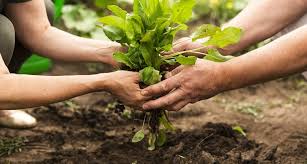Countries in Latin America and the Caribbean have established a consortium to collaboratively collect and generate data for veterinary drug residues, enabling the establishment of Codex maximum residue limits (MRLs), thus facilitating international trade and ensuring food safety. The consortium was established following training by the Food and Agriculture Organization of the United Nations (FAO) for stakeholders in the region.
The storyLatin American countries collaborate on food safety and international tradedescribes the process and lessons learned of establishing the regional consortium and presents the JECFA Toolbox for Veterinary Drug Residues Risk Assessment.
Through the FAO training, participants got insight into the step-by-step process of evaluating MRLs, enhancing their skills as technical experts representing their countries on the topic. Beyond the practical skills and knowledge, one of the key outcomes of the training was the formation of a “network of trust” between countries.
“Food safety is a very hot topic … We want to have some of the drugs widely used in the region assessed [by JECFA]. That would make trade much easier, and it would also be very important from a human health perspective. Because of that, we decided to gather and try to see how we could take some concrete steps to start really improving our capacity to collect data on these drugs and address these gaps,” said Isabela Maria Alves de Avila, then-Coordinator of the Brazilian Veterinary Drug Residues Working Group for the Codex Alimentarius at Brazil’s Ministry of Agriculture and Livestock.
Heilyn Fernandez Carvajal from Costa Rica’s National Animal Health Service (SENASA), who is part of the consortium, commented, “It’s important that we start to change the ‘chip’ and see ourselves more as allies – allies between multiple sectors, multiple professionals, in order to achieve this goal.”
Vittorio Fattori, FAO, commended the Latin American and Caribbean consortium for demonstrating regional collaboration: “I think it provides a good example for other regions to replicate – a model where countries collaborate to generate data on compounds of interest for production systems in their regions that are lacking Codex MRLs. It also shows the importance of Codex MRLs in international trade.” (https://www.fao.org/food-safety/news/news-details/es/c/1743217/)





































